If you're running a healthcare company, you already know that marketing in this space isn't like marketing a regular SaaS or DTC brand.
There are regulations to abide by, patient and client trust to earn, and a highly competitive environment where paid ads are mandatory, besides organic marketing, for faster and sustainable growth.
But here’s the problem: most healthcare marketing agencies don't understand the tricky landscape of healthtech. They might be great at running Facebook or Google Ads for e-commerce brands, but when it comes to factors like HIPAA compliance, FDA regulations, or patient acquisition strategies, they fall short.
That's why choosing the right healthcare digital marketing agency isn't just about finding a marketing team that can run ads. It's more about finding an extension to your healthtech startup that understands the unique challenges of healthtech marketing and can drive growth without putting your business at risk.
To make the process easier on your end, we have curated this list of the top healthtech marketing agencies specializing in advertising. Upon reading this blog, you’ll have a clear idea on:
- What to look for in a healthcare-focused paid marketing agency
- The best agencies that specialize in paid ads for healthtech brands
- How to pick the right agency based on your specific goals (B2B vs. B2C, lead generation vs. brand awareness, etc.)
Let's look at the 10 best healthcare marketing agencies that specialize in paid advertising.
Best healthcare digital marketing agencies for healthtech companies
1. IPG Health
IPG Health is a global network of agencies dedicated to healthcare communications, offering innovative marketing solutions to healthtech companies. Their expertise spans various facets of healthcare marketing.
Key Services:
- Strategic consulting
- Medical communications
- Digital marketing
Best For: Established healthtech firms aiming for comprehensive marketing strategies.
Pricing: Quote-based.
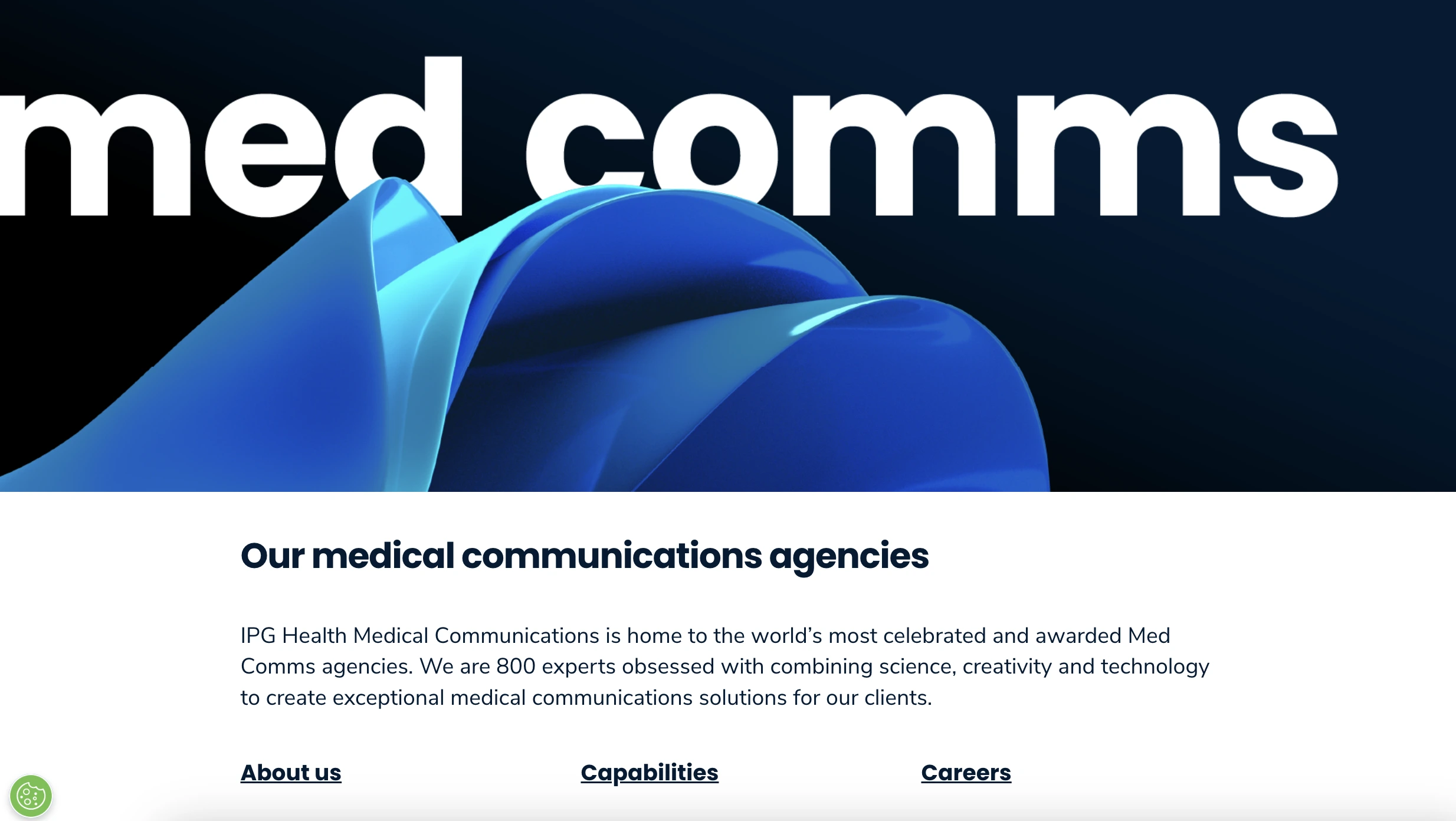
IPG Health
2. Kaya - Startup Marketing Agency
Yes, that’s us on no.2!
Excitement apart, we have established ourselves as a startup-focused marketing agency that specializes in healthtech brands, offering AI-powered performance marketing that is cost-effective and ROI-driven. Unlike traditional agencies, Kaya takes a full-funnel growth approach, helping healthtech startups scale paid advertising efficiently while navigating industry-specific challenges like HIPAA compliance, high customer acquisition costs, and complex audience targeting.
What sets Kaya apart is its end-to-end campaign management services combined with a proprietary marketing analytics platform. It comes with Kaya’s advanced marketing intelligence dashboard, also known as COIN. Together, they have competitor insights, campaign performance data, and actionable recommendations, making it easier for startups to optimize ad spend and maximize conversions.
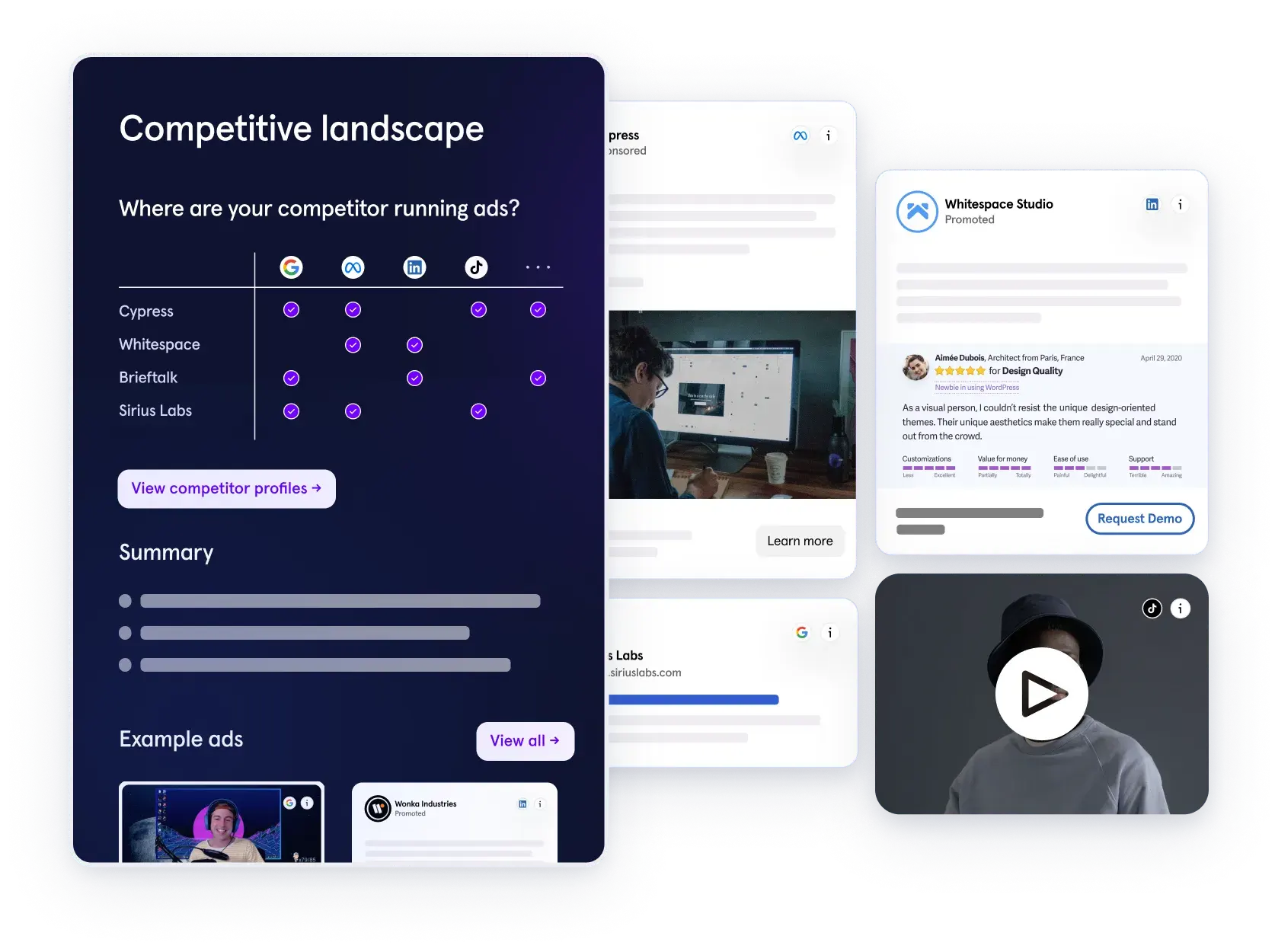
Competitor Ad Intelligence Tool (COIN) by Kaya
Key services:
- Paid ads across Google, Meta, LinkedIn, TikTok, YouTube, and X (Twitter)
- AI-powered competitor ad intelligence and market insights
- Full-funnel growth marketing strategy for B2B and B2C healthtech brands
- Performance creatives and CRO
Best for: Healthtech startups and scale-ups prioritizing culture-fit and looking for high-impact, full-funnel paid advertising.
Pricing: Fixed-rate pricing starting at $3,000/month with no hidden fees.
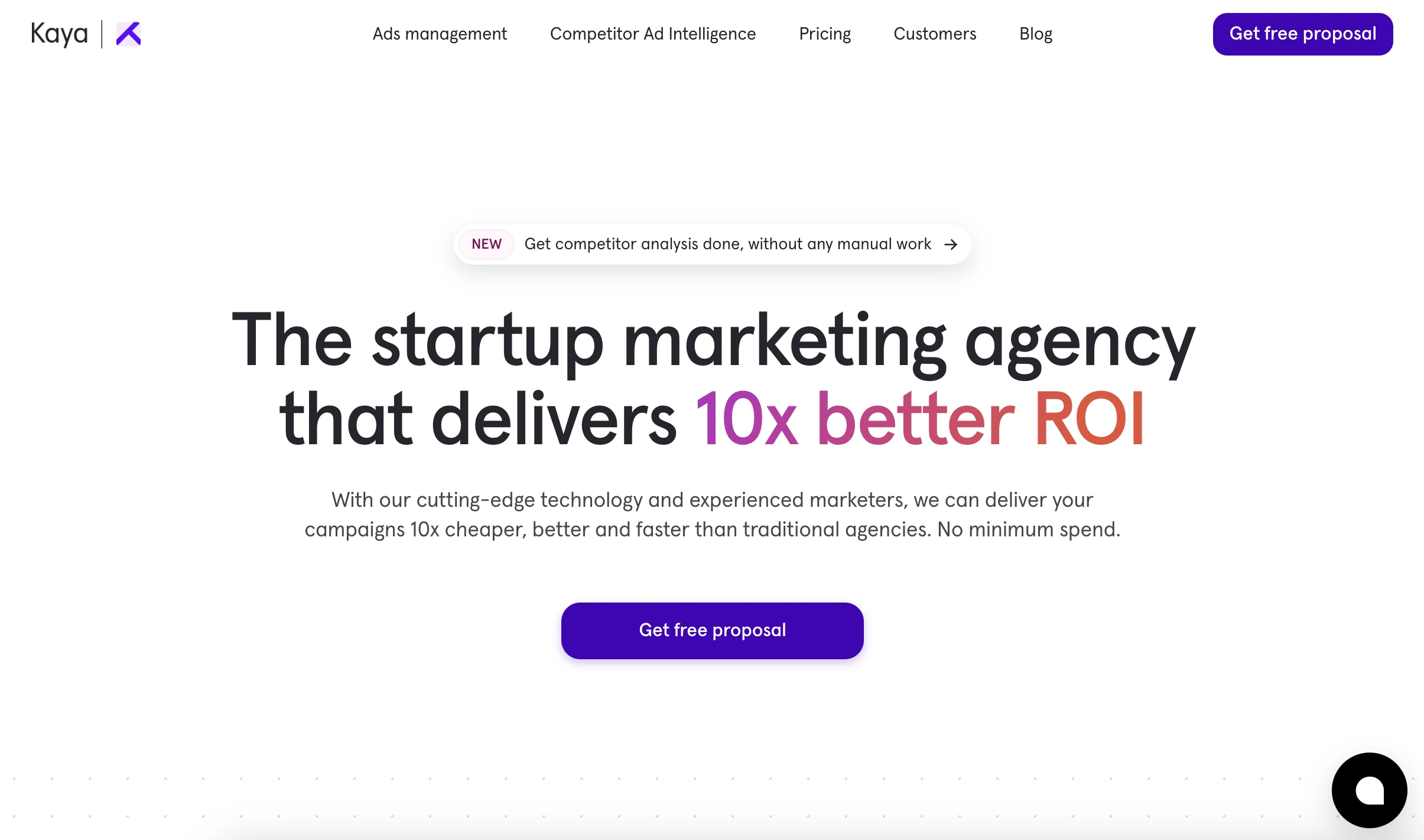
Kaya - the only startup marketing agency
3. Ogilvy Health
Ogilvy Health is a branch of the renowned Ogilvy network, specializing in healthcare marketing. They combine creativity with deep industry knowledge to deliver impactful campaigns.
Key Services:
- Brand development
- Digital advertising backed by data and AI
- PR and demand generation
Best For: Healthtech companies focusing on brand building and patient-centric campaigns.
Pricing: Quote-based.
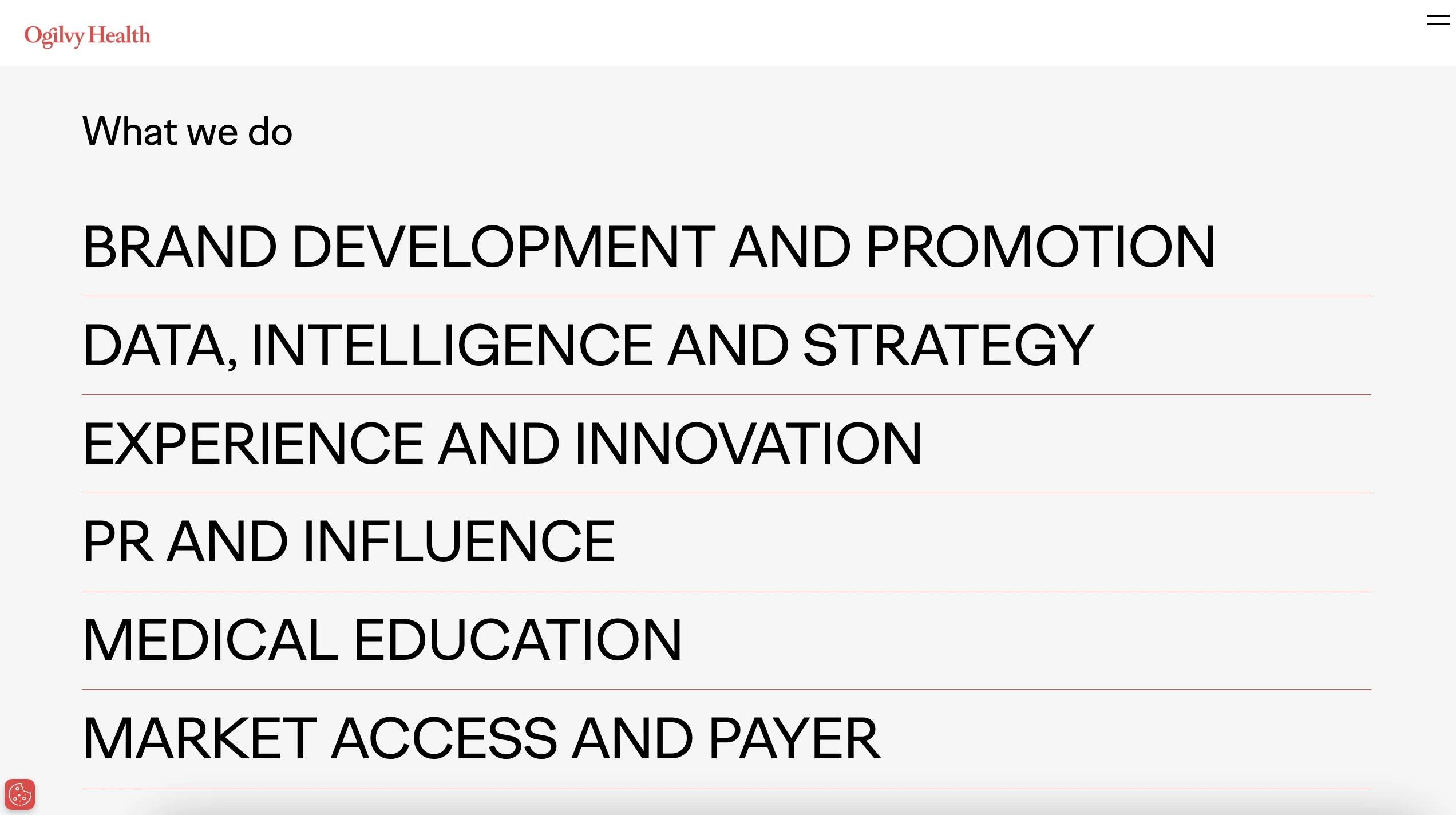
Ogilvy Health
4. Area 23
Area 23, a part of the FCB Health Network, is known for its innovative and award-winning healthcare campaigns. They excel in blending creativity with strategic marketing.
Key Services:
- Creative campaign development
- Digital media planning
- Healthcare professional marketing
Best For: Healthtech firms seeking groundbreaking and creative marketing solutions.
Pricing: Project-based.
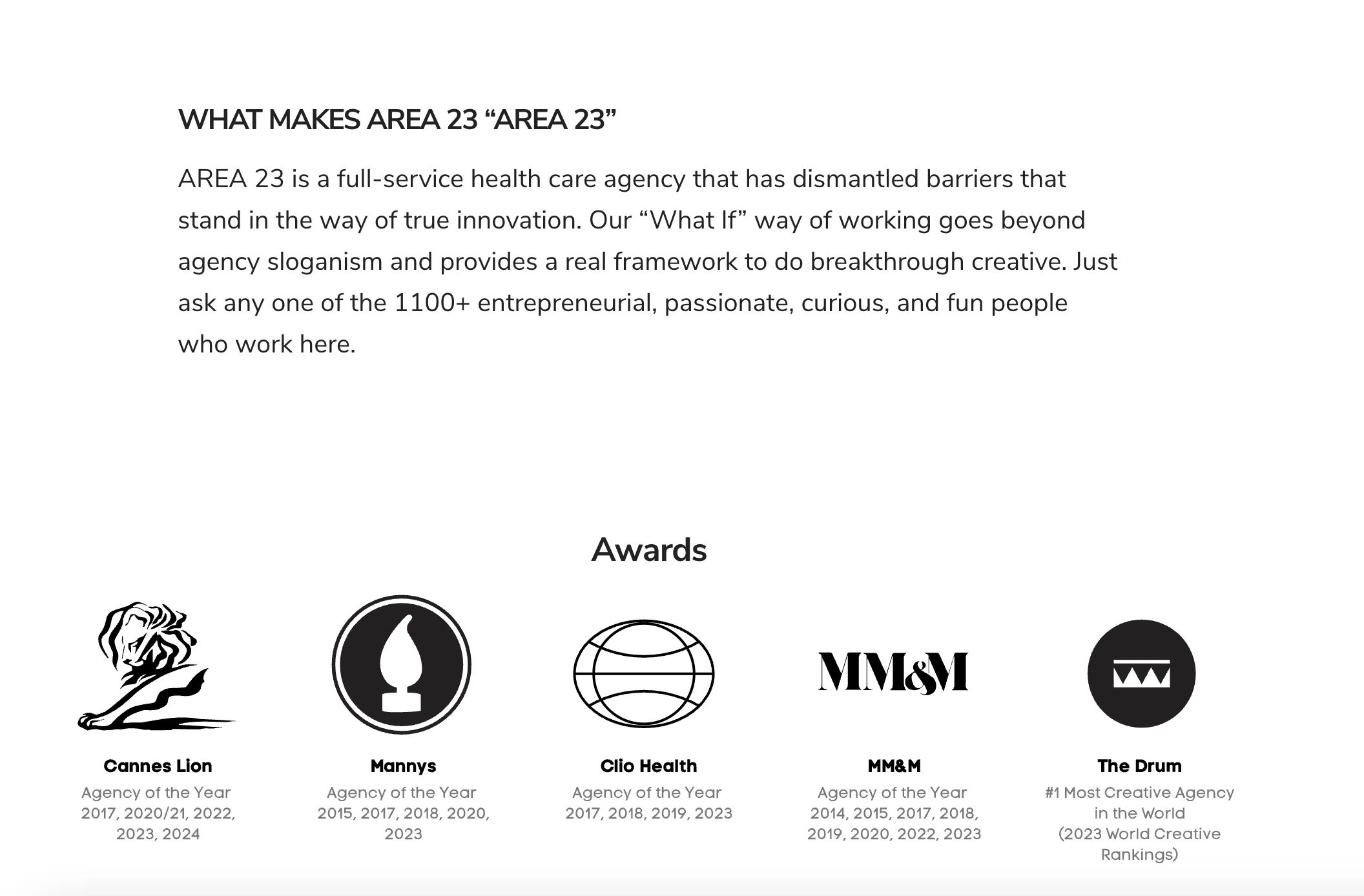
Area 23
5. Real Chemistry
Real Chemistry focuses on using data and technology to create personalized healthcare marketing strategies. They aim to connect healthtech brands with their target audiences effectively.
Key Services:
- Data analytics
- Integrated marketing
- Public relations
Best For: Healthtech companies aiming to harness data for targeted marketing efforts.
Pricing: Quote-based.
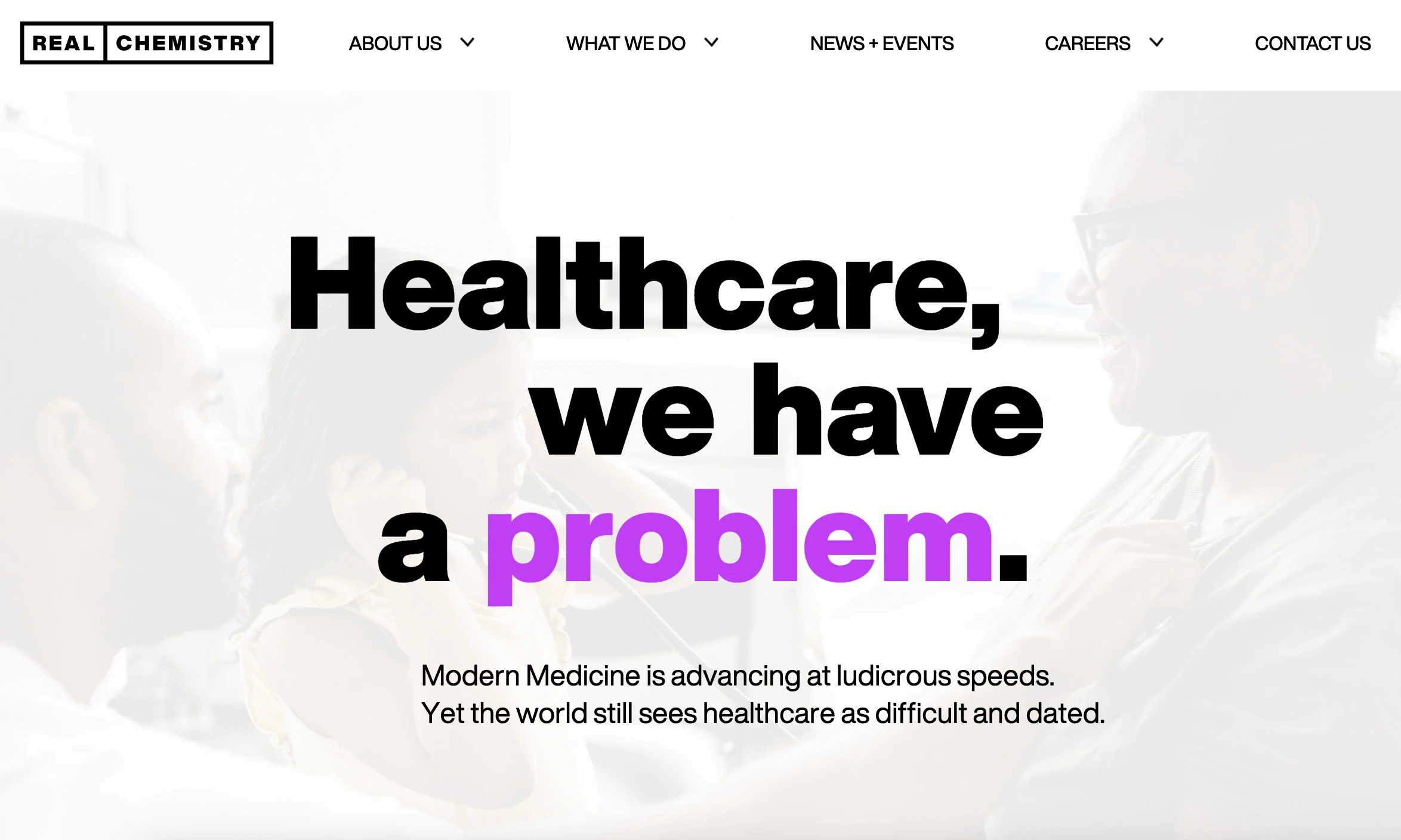
Real Chemistry
6. Saatchi & Saatchi Wellness
Saatchi & Saatchi Wellness specializes in health and wellness marketing, offering creative solutions that resonate with consumers. They focus on building emotional connections between brands and audiences through scientific storytelling.
Key Services:
- Creative advertising
- Digital strategy
- Social media marketing
Best For: Healthtech brands looking to emphasize wellness and consumer engagement.
Pricing: Quote-based.
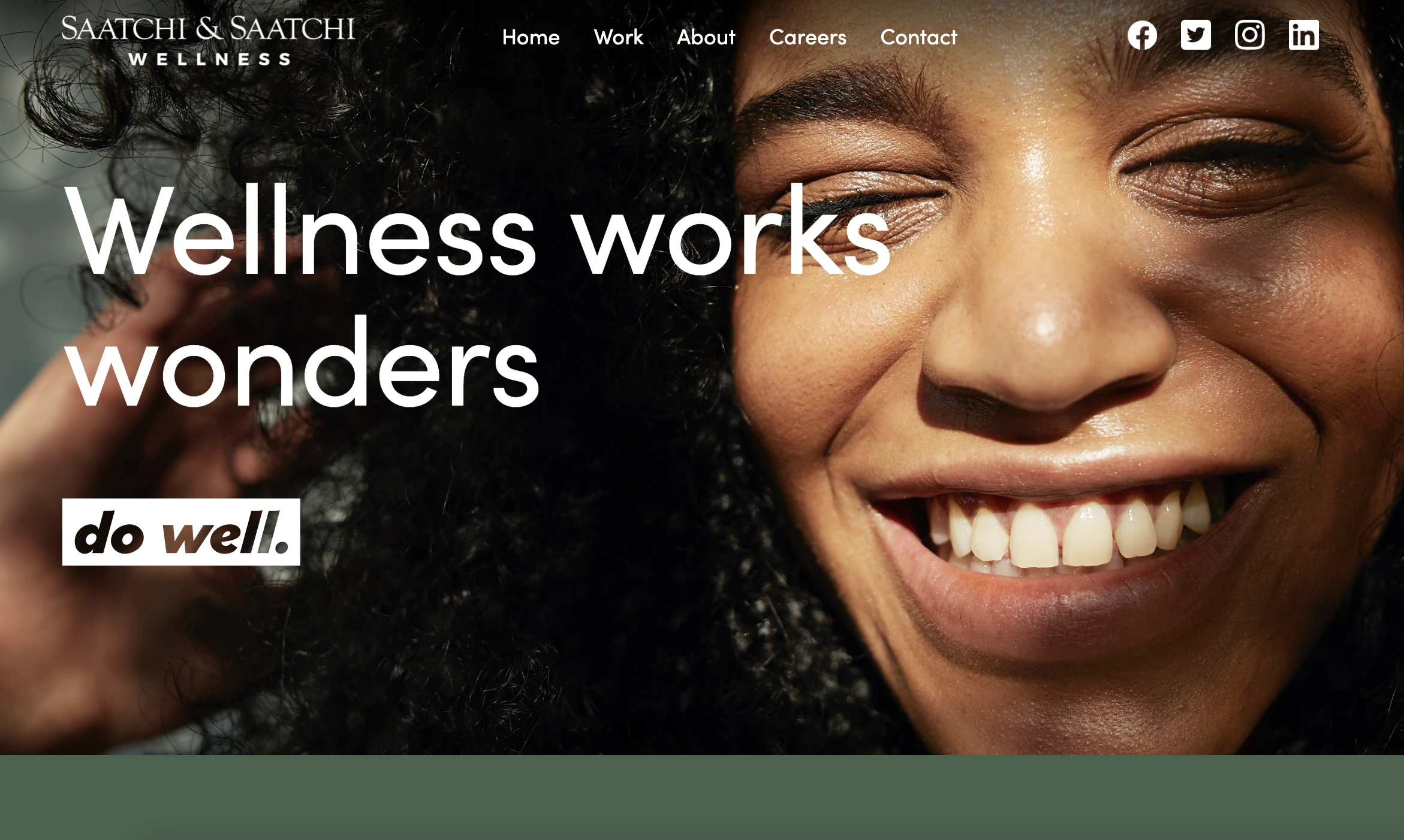
Saatchi & Saatchi Wellness
7. Evoke Group
Evoke Group is a Denver and Columbia-based brand, experience, and communications agency platform, purpose-built to make health more human. They provide a range of marketing and creative services, such as photography and videography, tailored to the health and wellness industry. They also sell their own merch.
Key Services:
- Branding and identity
- Digital marketing
- Performance creatives
Best For: Healthtech companies seeking content creation.
Pricing: Quote-based.
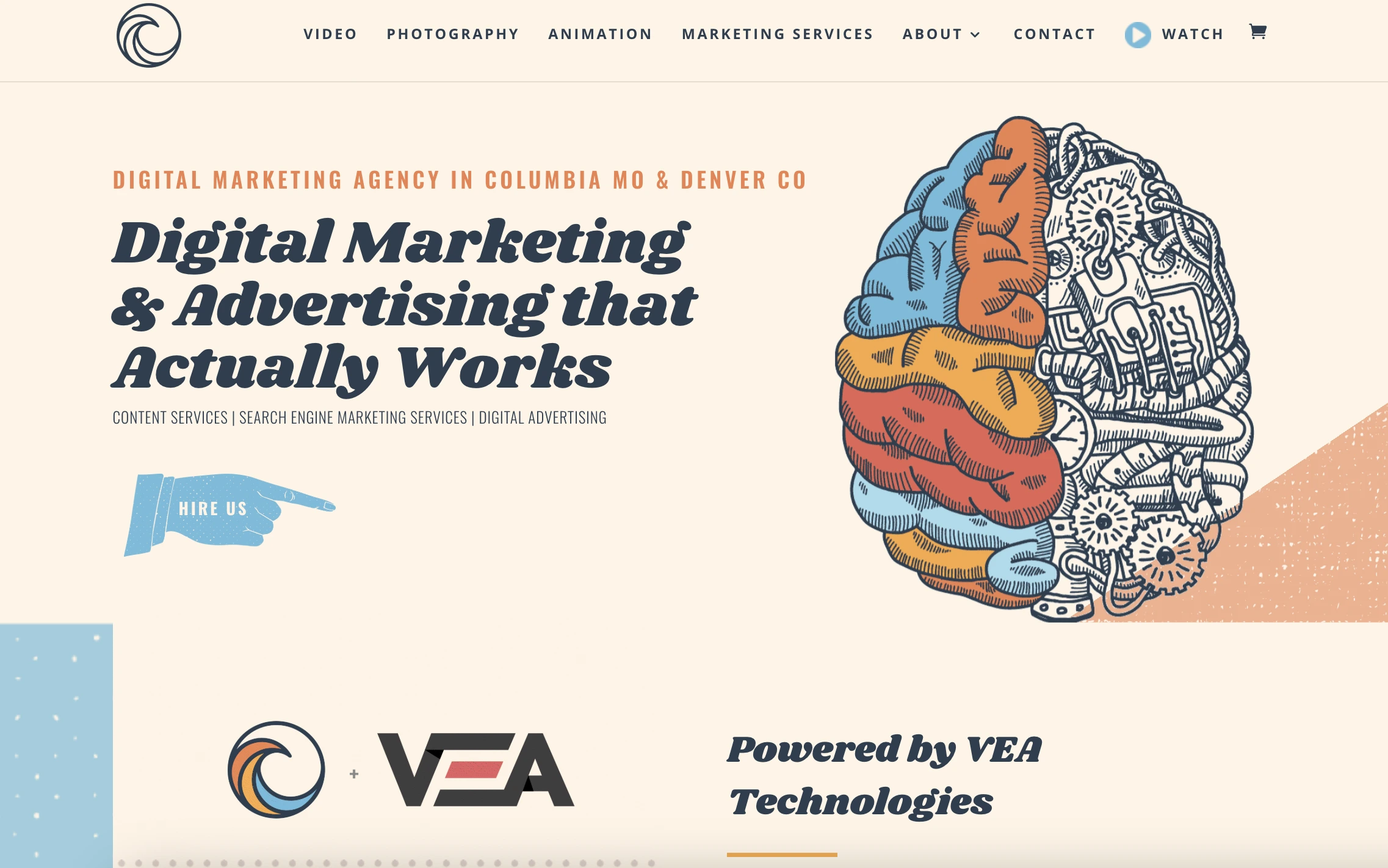
Evoke Group
8. Intrepy Healthcare Marketing
Intrepy specializes in healthcare marketing, offering services that drive patient acquisition and retention. They focus on enhancing the online presence of healthtech companies medical SEO, medical advertising, and marketing automation.
Key Services:
- SEO and content
- Website design
- Advertising and automation
Best For: Healthtech practices aiming to improve their digital footprint and patient outreach with a credible partner.
Pricing: Service-based.
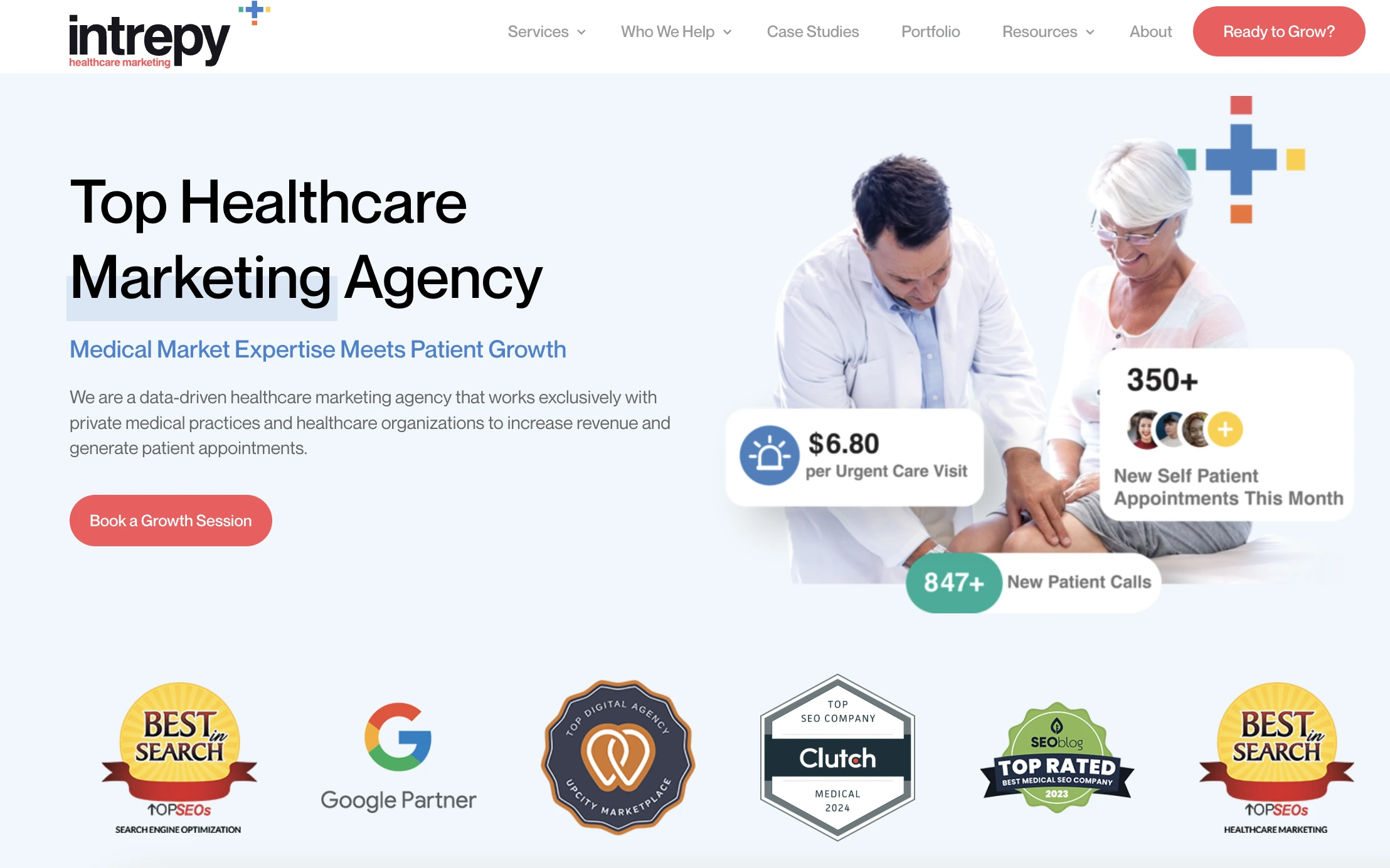
Intrepy Healthcare Marketing
9. SPM Marketing & Communications (Unlock Health)
SPM, now known as Unlock Health, specializes in healthcare marketing and communications, focusing on building brand loyalty and driving patient engagement. They offer strategic marketing solutions tailored to the specific needs of the healthcare sector.
Key Services:
- Integrated media planning and buying
- Social media and SEM (Search Engine Marketing)
- Media reporting and competitive tracking
Best For: Healthtech organizations seeking competitive and comprehensive marketing strategies to enhance brand presence.
Pricing: Quote-based.
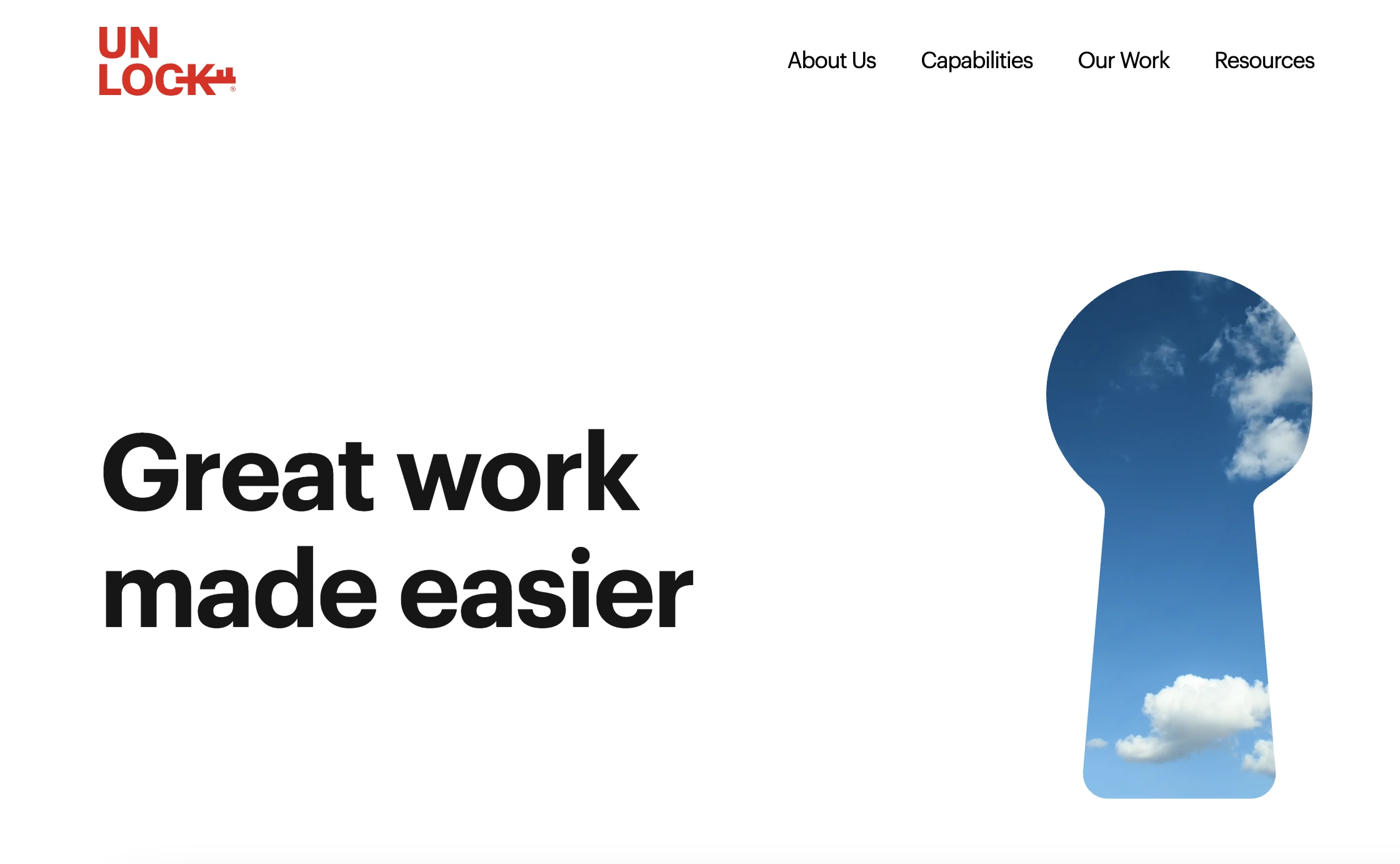
SPM Marketing & Communications (Unlock Health)
10. Cramer-Krasselt
Cramer-Krasselt is one of the largest independent agencies in the U.S., offering integrated marketing services. They focus on creating data-driven campaigns that deliver measurable results.
Key Services:
- Media and performance marketing
- Social media and PR
- Content creation
Best For: Healthcare startups with sufficient budgets and looking for top-notch performance creatives and OTT.
Pricing: Project-based.
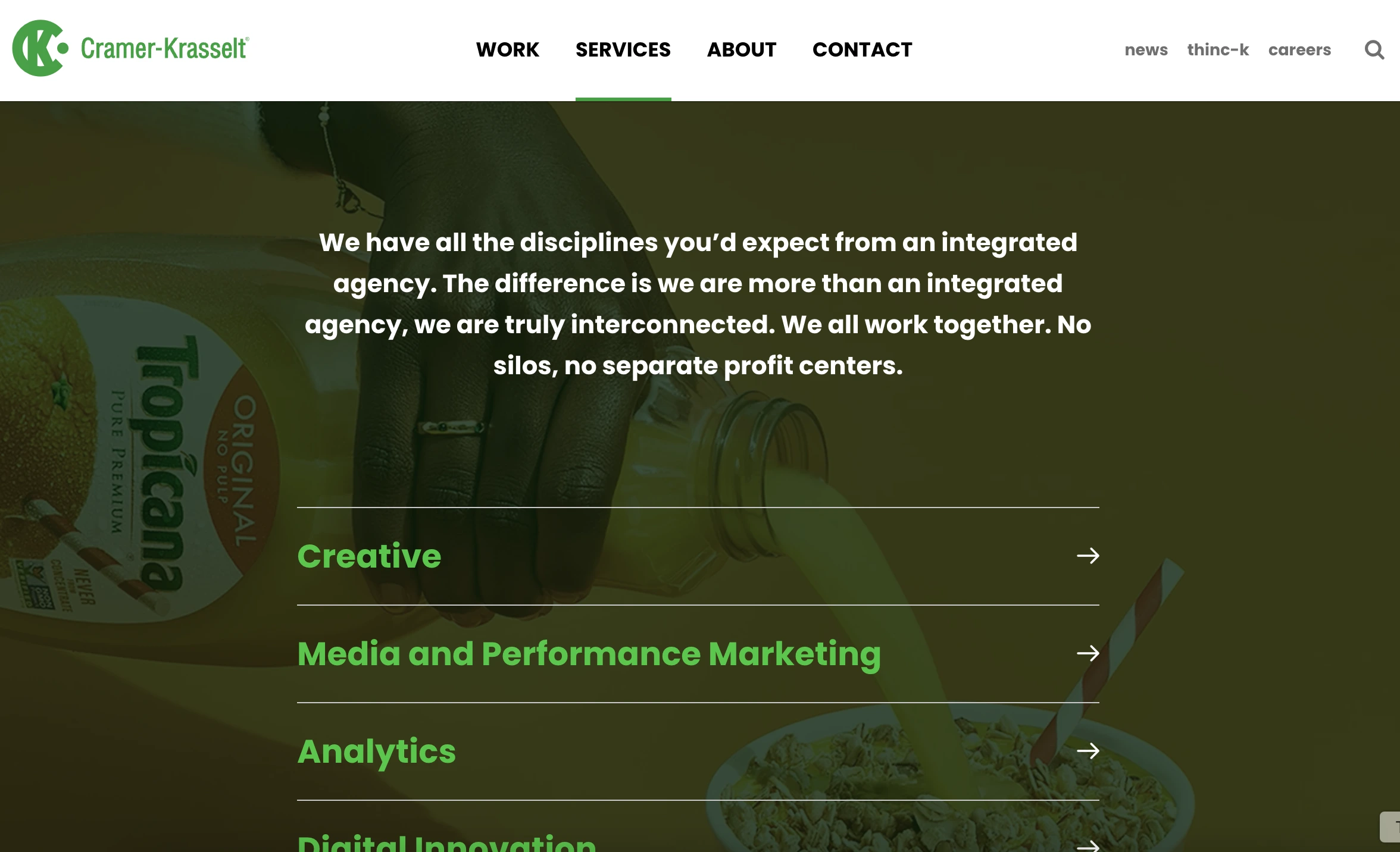
Cramer-Krasselt
| Agency Name | Overview | Key Services | Best For | Pricing |
|---|---|---|---|---|
| IPG Health | Global healthcare marketing network | Strategy, Medical Comms, Digital Ads | Established healthtech firms | Quote-based |
| Kaya | Startup-focused, AI-powered performance marketing | Paid Ads, Competitor Intel, Growth Marketing | Healthtech startups | $3,000/month |
| Ogilvy Health | Creative, patient-focused healthcare marketing | Branding, Digital Ads, Patient Engagement | Brand-building, patient-centric campaigns | Quote-based |
| Area 23 | Award-winning creative healthcare campaigns | Creative Ads, Digital Media, HCP Marketing | Innovative & disruptive healthtech brands | Project-based |
| Real Chemistry | Data-driven AI-powered healthcare marketing | Data Analytics, PR, Integrated Marketing | Personalized, data-driven marketing strategies | Quote-based |
| Saatchi Wellness | Wellness-focused marketing & branding | Creative Ads, Digital Strategy, Social Media | Emotional branding & consumer engagement | Quote-based |
| Evoke Group | Global health branding & communications agency | Branding, Digital Ads, Patient Engagement | Full-scale branding & digital marketing | Quote-based |
| Intrepy Healthcare | Patient acquisition & healthcare marketing | SEO, PPC, Web Design, Reputation Management | Practices improving online footprint | Service-based |
| SPM Marketing | Patient-focused healthcare marketing | Media Buying, Social Ads, Competitive Analysis | Competitive patient engagement | Quote-based |
| Cramer-Krasselt | Independent agency, PR-driven healthcare ads | Media & Performance, PR, Content Creation | Large-scale creative & PR-focused campaigns | Project-based |
Now that we have a list of the best agencies, it is time to choose one. But what factors should you consider for that? Breaking it all down for you below.
Key factors when choosing a healthcare digital marketing agency
Healthtech is a rapidly expanding sector, with the current global digital health market being approximately $288.55 billion, and has an expected CAGR of 22.2% from 2025 to 2030. While this presents massive opportunities, it also means more competition and stricter advertising regulations. Here’s a small example: Google Ads has a lot of policy restrictions when it comes to content related to healthcare. For privacy reasons, the ad data are sometimes kept private. So if you ran an ad on the keyword “speech therapy”, you still might not be able to see how many clicks you got from it.
Generalist marketing agencies don’t know how to design and implement strategies amid these stringent rules and regulations, leading to wasted ad spend, disapproved campaigns, or compliance risks.
To ensure your marketing efforts drive results while staying compliant, here’s what to look for when selecting an agency for your paid advertising campaigns.
Deep understanding of healthtech compliances and healthcare marketing
Healthtech marketing is all about educating, building trust, and navigating strict regulations. Unlike SaaS or e-commerce, where direct response marketing is straightforward, healthtech brands need to balance acquisition, B2B lead generation, and regulatory compliance in their messaging.
A strong agency should have experience working with B2B healthtech SaaS, consumer-facing telehealth brands, medical device companies, and digital therapeutics. They should also have enough experience in navigating the tricky policy restrictions of certain channels and how to make the most out of them in terms of results and revenue. It’s essential to work with an agency that understands HIPAA compliance for patient data protection, FDA advertising guidelines for medical devices, and Google and Meta ad restrictions around sensitive health topics. The last thing you want is for your ad account to get suspended for violating regulations you didn’t even know existed.
Multi-channel paid media expertise
Healthtech companies need a proactive ad strategy to reach the right audience at the right time. Agencies need to support them accordingly.
Google Ads is the go-to for search-driven intent and patient acquisition, while Meta Ads (Facebook and Instagram) are effective for telehealth and wellness brands. LinkedIn Ads are essential for B2B healthtech and SaaS companies looking to reach decision-makers in hospitals or enterprise healthcare firms. Programmatic advertising is increasingly being used for retargeting and large-scale brand awareness.
Since health-related searches make up 5% of all Google searches globally, healthtech companies that optimize for paid search have a significant advantage. However, strict advertising rules mean that agencies must structure campaigns carefully to get approved while maximizing conversions. This is why agencies should also have contingency plans in place just so that they know what to do if things go south.
Data-driven strategy and AI-powered ad optimization
Healthtech marketing is highly competitive, and without a data-driven approach, it’s easy to burn through ad spend without results. The best agencies go beyond simple ad placement: they use first-party data targeting, AI-driven bid optimization, and continuous A/B testing to refine messaging and improve performance.
By utilizing different advanced LLMs and predictive analytics, agencies can reduce cost per acquisition while ensuring that the right audiences are reached efficiently. With Google and Meta tightening restrictions on healthcare retargeting, data-driven strategies become even more critical in optimizing paid media performance. Take Kaya for example. Its proprietary Competitor Ad Intelligence tool (COIN) uses AI to generate data on which platforms and formats the competitors are mostly using, based on which actionable measures are taken to optimize campaign performance.
Experience in B2B vs. B2C healthtech growth
A direct-to-consumer telehealth platform needs a completely different paid strategy than a B2B SaaS for hospitals. The right agency should have sufficient experience in both B2C and B2B marketing.
For B2C healthtech, agencies should focus on high-intent search traffic, social media engagement, and conversion rate optimization for direct patient acquisition. For B2B, LinkedIn Ads, account-based marketing (ABM), and thought leadership campaigns play a crucial role in generating leads.
Since B2B healthtech buyers interact with an average of 10+ marketing touchpoints before making a decision, agencies must build long-term lead nurturing strategies rather than relying solely on direct conversions.
Transparency and culture-fit
Paid advertising in healthcare can be expensive, and you need an agency that is fully transparent about how they manage ad spend. They should provide clear breakdowns of management fees versus media costs, and offer real-time performance dashboards that allow you to track CPL (cost per lead), CAC (customer acquisition cost), and ROAS (return on ad spend). They should also maintain utmost transparency in terms of every small change they make to your ads and campaigns.
Every company has its own way of working. Their need for information, involvement and reporting are going to be different from each other. When choosing an agency, look for one that is flexible enough to meet your demands. Furthermore, it is always a good practice to look for agencies that have a similar culture as your own company. Y-Combinator companies like working with Kaya because we ourselves are a YC-backed agency.
Ability to scale with your business growth
Whether you're a startup in pre-launch mode or a growing healthtech company looking to scale, the agency you choose should be able to adapt. They should have experience handling rapid budget increases, optimizing ad spend at scale, and pivoting strategies as regulations change. Many companies need to change agencies when they want to double their ad spend or activities. As a result, they need to go through the hassle of onboarding again. This is why, it is better to work with an agency that hasn’t any issue with scaling in the first place.
How to choose the best healthcare marketing agency for your healthtech company
Now that we have shortlisted the factors that we should be considering while choosing an agency, it is time to take the final action: choose one. While we have made a list for you, you should note that not all of these agencies are built the same. So your choice should align with your specific business goals, budget, and marketing needs.
Here’s a structured approach to making the best decision:
1. Define your goals and budget
Before reaching out to any agency, clarify what success looks like for you. Are you focused on reducing your patient acquisition cost (PAC)? Do you need high-intent leads for your B2B sales team? Are you launching a new digital health product that needs widespread awareness?
Your goals will determine which agency specializes in the type of paid advertising you need. For example, if you’re a B2B healthtech company, you’ll want an agency with LinkedIn Ads and ABM (Account-Based Marketing) experience. If you’re a telehealth platform targeting consumers, you’ll need a team skilled in Google Ads, Facebook Ads, and YouTube campaigns. If you’re marketing a healthtech app, you need an agency experienced in app install campaigns, App Store Optimization (ASO), and retention-focused paid strategies. App-based healthtech companies should also prioritize teams that can manage in-app conversion tracking, optimize app install costs, and refine retention strategies to reduce churn. Lastly, if compliance is your biggest concern, you should opt for an agency with HIPAA-compliant advertising experience.
At the same time, you need to set a realistic budget. Some agencies charge a percentage of ad spend, while others work on retainer or project-based pricing. Make sure their pricing model aligns with your growth stage.
2. Request case studies and past client results
An agency might have an impressive website and a long list of services, but what truly matters is proof of performance.
When speaking with agencies, ask for:
- Case studies showing real results for healthtech clients
- Performance metrics such as cost per lead (CPL), cost per acquisition (CPA), and return on ad spend (ROAS)
- Examples of how they handle compliance and ad policy challenges
Agencies that specialize in healthtech should have a track record of successfully running compliant, high-ROI campaigns.
3. Understand their approach to compliance and ad restrictions
Unlike other industries, healthtech advertising comes with a set of non-negotiable rules. Google, Meta, and LinkedIn have strict guidelines on medical advertising, and failure to comply can lead to disapproved ads or account bans.
Make sure the agency understands:
- HIPAA, FDA, and GDPR in advertising
- How to create ad copy that passes platform restrictions
- Alternatives to retargeting (since it’s restricted to healthcare ads)
- The best ways to optimize landing pages for conversions while staying compliant
4. Assess their transparency and communication style
A great agency should act like an extension of your team, keeping you informed at every stage. Before signing a contract, ask how often will they report on campaign performance. Confirm if you will have access to a live dashboard for real-time insights and if they provide clear breakdowns of where your ad spend is going.
Remember, a lack of transparency is a red flag — especially when it comes to ad budgets and performance data.
5. Start with a short-term test before committing to long-term
If you’re unsure whether an agency is the right fit, consider running a pilot campaign. Many agencies offer three-to-six-month contracts to test performance before moving into a long-term agreement.
If the agency hits key performance targets (lower CAC, higher lead quality, better conversion rates), you can scale up your ad spend confidently. And if they fail to deliver results, it’s easier to switch to another agency without wasting a significant budget.
How compliance impacts paid advertising in healthtech companies
Understanding compliance in healthtech advertising is one of the biggest challenges marketers face. Unlike other industries, healthcare advertising is heavily regulated by HIPAA, FDA guidelines, and Google’s healthcare ad policies, making it difficult to use traditional paid media strategies. Non-compliance can lead to ad disapprovals, account suspensions, or even legal consequences, which is why working with an agency that understands these regulations is critical.
How healthtech ads need to follow Google’s healthcare advertising rules
Google has strict policies for healthcare-related advertising, requiring pre-approval for certain medical services, restrictions on pharmaceutical promotions, and limitations on retargeting. Advertisers in PHI-sensitive industries must use certified healthcare advertisers to run compliant campaigns. Ads promoting telehealth, prescription drugs, or medical treatments must adhere to regional laws, and failure to comply can result in ad disapprovals.
Why PHI-sensitive industries require compliant ad tracking & retargeting
Healthcare marketers cannot use traditional retargeting strategies because storing and using protected health information (PHI) for advertising is restricted under HIPAA and GDPR. Instead of tracking individual users, compliant strategies focus on contextual targeting, first-party data strategies, and privacy-first audience segmentation. Meta’s healthcare advertising policy further restricts how advertisers can target users, prohibiting ads that suggest the user has a specific medical condition. To remain compliant, advertisers must focus on broad targeting and educational content rather than direct patient targeting.
FAQ
Why should a startup consider using a marketing agency?
What is startup marketing?
How much does digital marketing cost for startups?
What are the best healthcare PPC strategies for lowering patient acquisition cost (PAC)?
How does programmatic advertising benefit medical device and biotech companies?
Final thoughts
Your ideal partner should not only excel in executing paid advertising campaigns but also possess a deep understanding of healthcare regulations, audience nuances, and data-driven strategies.
But the reality is unfortunately not so utopic: while most agencies can run Google and Meta ads, few truly grasp the intricacies of healthtech marketing. The balance between performance marketing and compliance is critical, and an unfit agency can cause wasted ad spend, disapproved campaigns, and misalignment with industry best practices.
There’s no alternative to choosing an agency that understands HIPAA regulations, ad policy restrictions, and healthcare-specific audience behavior. This will ensure that every dollar spent contributes to long-term growth rather than short-term vanity metrics.
At Kaya, we specialize in delivering tailored performance marketing solutions that drive measurable results for healthtech companies. We’ve worked with some of the most innovative healthtech startups, helping them scale without sacrificing efficiency.
When Hona, a Y Combinator-backed healthtech startup offering online speech therapy, initially partnered with us, they were looking for a marketing strategy that could support their rapid growth. Their previous agency had struggled with responsiveness, slow iterations, and a lack of cohesive strategy. These issues became even more apparent when they tried working with a competitor’s agency in December 2024. Frustrated by communication issues and underwhelming results, they returned to Kaya in January 2025. Within three weeks, we helped them achieve a 62% improvement in conversion rates and a 64% decrease in cost per lead, all while increasing the volume of qualified leads that fueled their expansion.
Here’s what we did: a complete overhaul of their landing pages, ad creatives, and audience targeting strategy, ensuring that their paid media efforts aligned with both their business goals and patient acquisition model.
If your healthtech company is looking for a marketing partner that truly understands the nuances of compliance, audience segmentation, and performance-driven advertising, Kaya is here to help. Just like we did for Hona, we can help optimize your acquisition funnel, lower costs, and increase conversions — all while ensuring compliance and strategic alignment.


